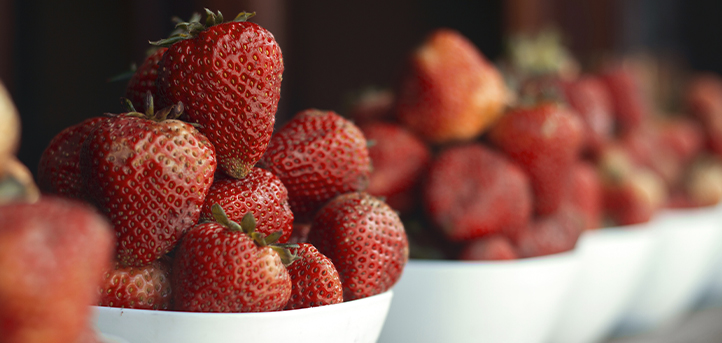Research focused on the bioactive components of the strawberry variety Romina, in which the European University of the Atlantic participated, has demonstrated the capacity of this food to delay paralysis induced by the β-amyloid protein, reduce amyloid-β aggregation and prevent oxidative stress in the experimental model Caenorhabditis elegans.
In addition, the work tested the richness of the strawberry extract used in the study in terms of its content of phenolic compounds (mainly ellagic acid and pelargonidin-3-glucoside) and minerals (K, Mg, P and Ca).
The Romina strawberry variety stands out for its high adaptability to unsprayed soils and open field cultivation in climatic conditions from the Adriatic to central-northern Europe and for its resistance to diseases, as well as being recognised for its nutritional quality and early ripening.
The authors of the study point out that, despite the health benefits of eating strawberries, there is little information on the relationship between this fruit and neurodegenerative diseases such as Alzheimer’s disease.
The research was led by Drs: María D. Navarro-Hortal, Jose M. Romero-Márquez and Jose L. Quiles (Department of Physiology, Institute of Nutrition and Food Technology “José Mataix”, Biomedical Research Centre, University of Granada), Adelaida Esteban-Muñoz (Department of Nutrition and Bromatology, University of Granada), Cristina Sanchez-Gonzalez, Juan Llopis and Lorenzo Rivas-García (Department of Physiology, Institute of Nutrition and Food Technology “José Mataix”, Biomedical Research Centre, University of Granada; Centro de Investigación Deporte y Salud), Danila Cianciosi (Department of Biochemistry, Faculty of Science, King Abdulaziz University), Francesca Giampieri and Maurizio Battino (Department of Clinical Sciences, Università Politecnica delle Marche) Sandra Sumalla-Cano (Research Group on Food, Nutritional Biochemistry and Health, European University of the Atlantic).
The full article can be found through the following link.


